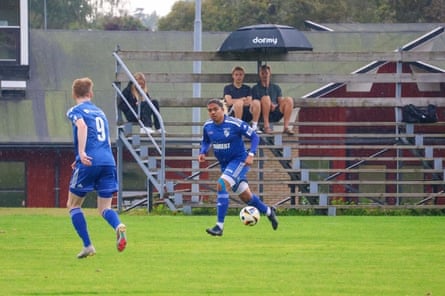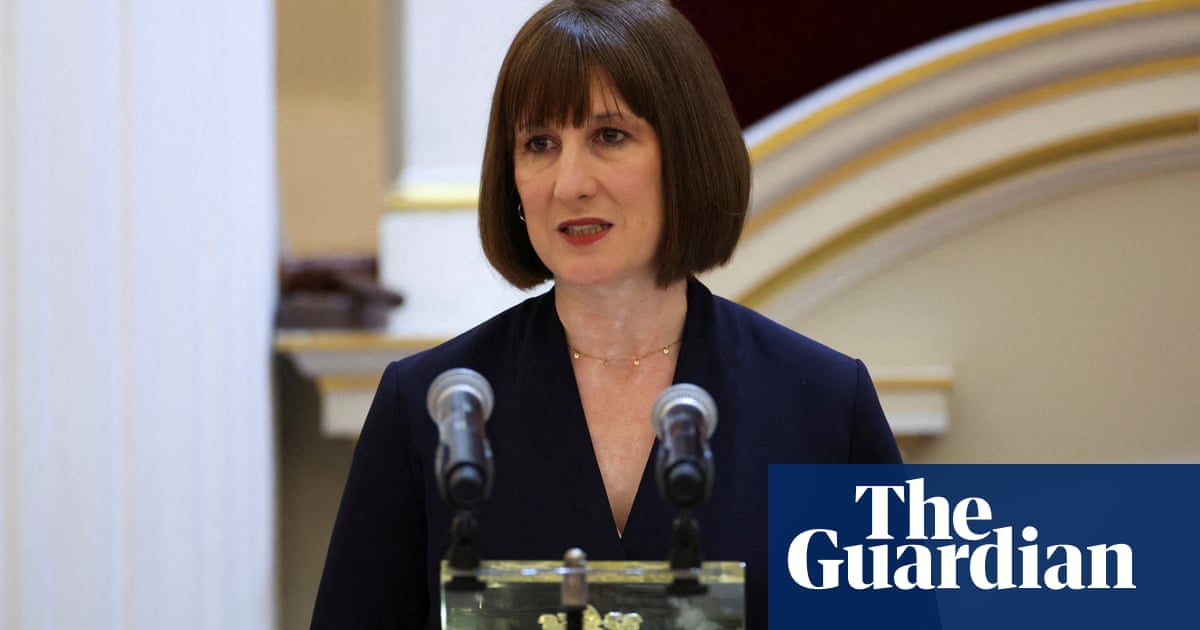Daniel Aldana had a dream, one shared by millions worldwide. He was desperate to be a professional footballer; all he needed was an opportunity. Aldana was training with a National League team when he was contacted on LinkedIn by someone claiming to be an agent and offering a trial with a Swedish third-tier club.
Aldana simply had to pay a small sum to cover medical insurance. Then the agent asked for a further €350. Aldana was, apparently, not suitable for the club’s needs, meaning the agent had to really push for his trial to go ahead. “I said: ‘Fair enough,’” Aldana says. “That’s how football works. I must take risks.”
Finally, Aldana’s trial dates were confirmed. Except now another €200 was requested to cover his food during the seven-day trip. Aldana paid but the agent promptly blocked him on WhatsApp and all social media.
Patrick Gustafsson shared Aldana’s dream. A part-time nursery teacher in Sweden, his passion was football. His so-called agent got in touch touting a trial in Belarus. The price: 7,000 Swedish krona – around £520 – would secure his spot.

“I didn’t know what to believe,” Gustafsson says. “It was a lot of money, but I really wanted the opportunity. It became real to me when he asked for money. But at the time, I didn’t know any better. I had just turned 18 and had a dream to go pro.” He paid the money but lost it all.
Nathan Miles can relate to Aldana and Gustafsson. He was offered a trial at the Ukrainian club Zorya in exchange for a registration fee of $741. “As a naive 16-year-old, I wasn’t 100% sure how this was meant to go,” Miles says. He parted with the cash. Good news followed: before seeing him play in the flesh, Zorya wanted to pay Miles a $50,000 sign-on fee and a monthly net wage of $5,000. It simply required a $2,200 deposit. “At this point, I’m fully aware that this was completely wrong,” Miles says. “I was a pretty dumb 16-year-old but knew a professional team wouldn’t offer a senior contract without physically seeing them.”
Rather than walk away, Miles negotiated. He didn’t want the contract but did want to go to Ukraine for the trial. Eventually dates were settled, but Miles’s official documentation supposedly got stuck in Switzerland. It would cost $150 to release. That was a line Miles refused to cross, and he asked for his initial fee to be refunded. Instead of blocking him the agent insisted Miles would be reimbursed and continued offering alternative trials. Miles never received any money back.
What links these young players and countless others out there? “There are so many who are just so desperate, and they do truly believe that they need that one opportunity because they’re so close,” Miles says. “But opportunities in football are rare for players who aren’t at the top level, and so when a player believes that their opportunity is finally here, emotions take over logical thinking.”
And it is in that mental malaise that scammers thrive. “They use a young player’s dream against them,” says Miles’s brother Josh. The siblings run JNM Football, a consultancy that mentors those trying to break into the professional game. “Most of these players probably know that it’s fake or a scam, but they want it to be true. They want to be a professional player so badly that they tell themselves: ‘Oh, this could be it.’”
Josh recalls one instance where a club was directly involved in the scam. It involved an American youngster who signed with a lower-league Italian club. Eventually the club informed him they could no longer afford to honour his contract but not before the player had paid the fees and moved to Italy. “That’s the worst I’ve seen,” Josh says. “This fake agent found clubs with financial problems and agreed a deal with them whereby the agent split the money from the scam with the club.”
Although that case was an outlier, there are other variations on the scam, ranging from the immoral to the illegal. At the unethical end of the scale, agents and clubs stage trials where players are charged to attend, with a potential contract dangled as a carrot. Unsurprisingly, no one is ever picked up professionally.
John Print is an agent who has worked with several players who have been cheated. One Canadian client signed with an agency on the promise of an extended trial in the Netherlands. Soon though, the player’s mother “was crying on the phone to me because her son was so unhappy”, Print says. “The coach was ignoring him and a bit abusive. It wasn’t even a trial or training with a club – he was just training with a group of players. They’re basically just adult versions of the football camps that kids go on in the school holidays.”
Similarly immoral is, as Print explains, the practice of an agency taking a registration fee for a player who has “absolutely zero chance of actually getting” a professional contract “because their CV and their video is nowhere near good enough”.

Then there is the outright unlawful. Theft and fraud. The fake agent will approach a player with a promise of an opportunity, often providing counterfeit documents containing official club branding. LinkedIn is the current platform of choice, with thousands of footballers registered there.
Conversations are soon moved to an encrypted platform such as WhatsApp, where some agents ask for larger cash sums and then disappear on receipt. Others play a longer game, asking for money to be dripfed. They rely on the sunk-cost fallacy gripping players – humans frequently ignore the evidence and persist in chasing an unobtainable outcome. In this context, the agent hopes that a player who has paid an unrecoverable initial fee will continue to invest in the hope that there really is a trial at the end of it.
How to spot a scam? There are plenty of common red flags. A request for any sort of fee should immediately ring alarm bells. Article 19 of Fifa’s regulations on the status and transfer of players prohibits this and says the club must cover the cost of any medical treatment for injuries sustained during the trial. An official trial form should be completed and filed with Fifa at least 10 days before the trial. This should provide details of travel, accommodation and food expenses.
The documents players are sent by fake agents often contain simple spelling and grammatical errors, and made-up names for club officials are used commonly. The issue is that in the excitement, these telltale signs often go unnoticed.
Take Aldana, who received screenshots of his agent’s supposed conversation with the president of the club where he was due to have a trial. The agent had saved the official’s name in his phone as “President Täby FC” – not the club he was supposed to be visiting. Spotting that might have saved Aldana his cash.
Players can also check various online resources. Agents operating domestically are required to be registered with the Football Association, and a list is published online. The FA and Fifa maintain a list of individuals under suspension or sanction.
A sad byproduct of human nature is that wherever there are dreams, there will be those willing to exploit them for financial gain. “I felt ashamed,” Gustafsson says. “I thought I was so dumb to get scammed like that. When I asked for my money back, the guy told me that I was being unprofessional. He threatened me by saying he’d make sure I never played professionally. I kept it to myself because I feel ashamed to this day.”
By speaking out, he hopes others will jump over the holes into which he fell.

.png) 1 month ago
10
1 month ago
10













































